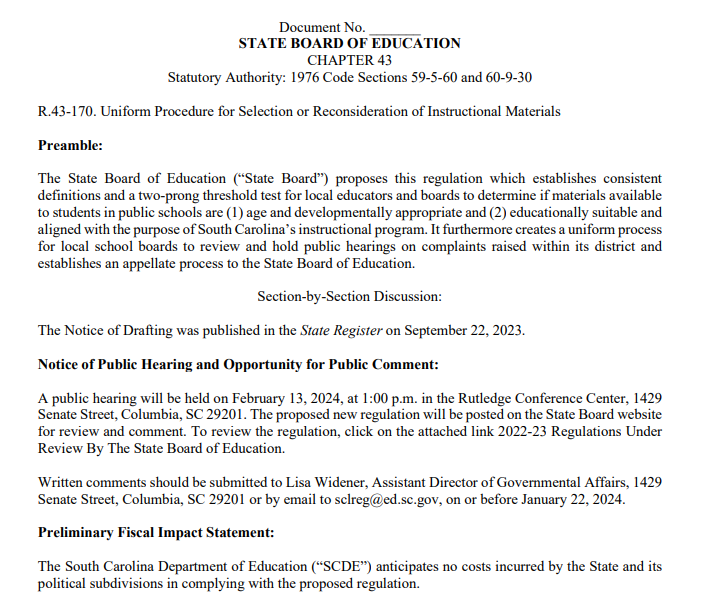Common Questions About Education Scholarship Accounts (ESAs)
What is an ESA?
ESAs allow parents to apply for eligible students to receive the state portion of education funds (or in the South Carolina case, a portion of state general funds) into a personal, parent-controlled account. Parents are then empowered to customize an education experience that meets the individual needs of their child, using their account to pay for approved services like tuition, therapy, tutoring, textbooks, and more.
Already successfully working in other states, ESAs are a powerful, proven innovation that creates one more critical pathway for South Carolina students to have a customized education that equips them to reach their full education potential. Some states use debit cards, as in this graphic. South Carolina will use an online portal.
Who would be eligible for a South Carolina ESA?
South Carolina’s new law blends the approaches of other successful state ESA laws. In its current form, the Palmetto State bill would extend ESAs to students who are starting K5 through 12th grade, have an annual family income of 200% or less of federal poverty guidelines, and previously attended public school.
Will the enactment of ESAs have an impact on South Carolina’s current Exceptional SC tax credit scholarship or Exceptional Needs parental tax credit?
No. ESAs do not in any way change this program, or the associated parental tax credit program. Exceptional SC Tax Credit Scholarships that benefit children with special needs are funded through donations of state tax liability to an independently run non-profit organization that then issues scholarships to eligible students. ESAs simply offer one more option for some of these families—and many others—to help meet the unique educational needs of their students.
Will ESAs impact homeschooling in South Carolina?
The entry of ESAs onto the South Carolina educational landscape will not affect the rights of parents and students using the existing three options for homeschooling in any way. Homeschoolers using all three accountability methods will have the same freedoms and be unaffected by the ESA program.
Will ESAs create government interference or mandates for independent schools?
No. First, there is no obligation for any school to participate in the program. Second, unlike in a voucher program, the only financial transaction involving the state is when the state transfers funds to the parent’s account. The state does not directly pay any education vendors, including private or religious schools. Whether the parent spends ESA funds (legally, their student’s money not the government’s) on private schooling or some other form of education is up to them, as long as it is an ESA-approved expenditure.
This keeps the government out of independent schools and personal education decisions.
Will ESAs create financial hardships for traditional public schools?
No. Public schools in states that have ESA programs have not been harmed. For each student participating in the South Carolina Education Scholarship Account (ESA) program, a public school will no longer bear the cost of instructing the student.
Will ESAs cause a “mass exodus” from traditional public schools?
No. If parents are pleased with the outcomes of their local public school, they will have no need for an ESA. Many parents are content with the school for which their student is zoned. The best predictor of the rate of transfers to ESAs from public schools would be to look at the largest and longest-running programs: Arizona and Florida. In Arizona, just a little over 30,000 students participate in the program
(out of 1.1 million total students). In Florida, about 25,000 students benefit from Education Scholarship Accounts (out of a 2.8 million student population).
Will ESAs leave traditional public schools with all the “difficult” students?
No. ESAs are specifically designed to benefit students who face economic challenges. Often, these are the students who fall behind or are not well-served in traditional education environments.
How do you ensure that funds are spent on actual education expenses? South Carolina’s legislation applies lessons learned in other states with specific checks built-in to prevent intentional or unintentional misuse, such as the use of an online portal for education purchases. Parents will not be able to buy anything they want with ESA funds, only approved items and services. This makes ESAs as—if not more—transparent than any other form of education spending.
Are ESAs too complicated for parents to use?
No. While there is a natural learning curve for everyone using something new, parents of all income levels routinely navigate financial decisions like housing costs, car loans, healthcare expenses, and more. Consumer data shows that millennial parents, across all demographics, are well-versed in the use of online banking and similar products. Parents of all income levels in other states have proven it possible, and ESAs will empower South Carolina parents with the same options as their counterparts around the country.
Are ESAs the same as vouchers?
No. The key aspect that distinguishes ESAs from vouchers is parent control and customization. Instead of the state sending funds directly from the state to a specific private school, the state instead deposits funds into a parent-controlled account. These funds can then be spent on a wide array of approved education services, not only tuition like in voucher programs.





